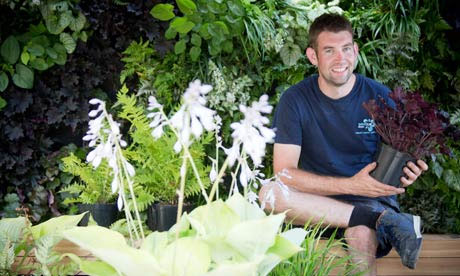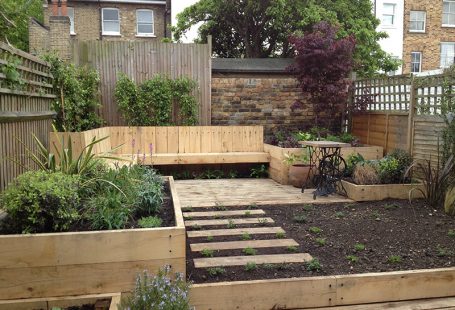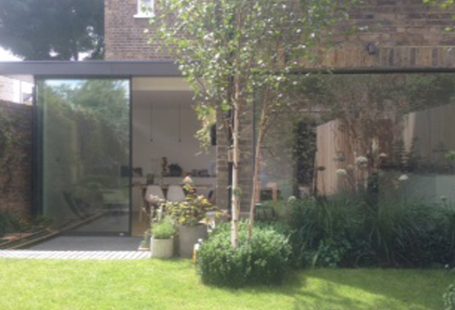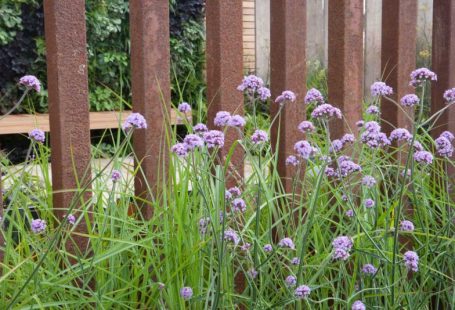 Tony Woods was 14 when he knew he wanted to be a professional gardener; now he has turned his passion into his own company
Tony Woods was 14 when he knew he wanted to be a professional gardener; now he has turned his passion into his own company
On sunny summer days, many a jaded office worker fantasises about earning a living from the soil. Tony Woods, however, nursed his horticultural ambitions through harsh Cumbrian winters, drenching summers and frequent domestic upheavals.
“My mother was an interior designer and we moved house a lot because my parents loved doing up old houses,” he says. “The inside of our home was always creative and immaculate but the garden was always a mess because no one had any interest in it, so I would take it on in the holidays.”
At 14 he knew he wanted to be a professional gardener; now 27, he is a finalist in the Royal Horticultural Society’s Young Garden Designer of the Year 2013 award and survived the rigorous selection procedures to create a garden at this month’s RHS Tatton Park Flower Show.
Garden design courses are flourishing across the country as people seek to survive austerity by going it alone and deriving an income from a hobby. But, says Woods, there are too many designers, especially in the south-east, and too few professional gardeners with an in-depth knowledge of plants.
“Most designers make money from hard landscaping – selling you a wall or a patio or decking; they don’t look at the effect this has on wildlife and drainage,” he says. “I saw a gap in the market for garden design that involves planting as the focus and drops in necessary hard landscaping around it.”
He set up his own garden design and landscaping business, Garden Club London, after moving to London and spending four years working for Gingko Landscape Contractors. On his arrival in the city, five job interviews translated into five job offers, despite the economic downturn, a fact he attributes to his rigorous hands-on training. Lacking the funds to attend university, on leaving school he completed a national diploma in horticulture at Newton Rigg College in Cumbria and spent 18 months maintaining Europe’s largest living green roof at a local visitors’ centre. He then acquired a 40-hour a week post at a nearby rare plants nursery and simultaneously fitted in a foundation degree in design and plant knowledge at Myerscough College in Lancashire.
The nursery job swiftly differentiated between armchair gardeners and committed sloggers. “I started in the coldest winter in 14 years and some people only lasted two days,” he says. “If you don’t have the passion you can’t do it because you’re out in freezing glass houses or polytunnels all the time and the only part of your body you are moving is your fingers – in cold, wet compost.
“But it’s the best experience I’ve had because you get to see plants at every stage of life – as spring seedlings, in summer flower, as twigs in winter and the reward is when you see plants you’ve propagated going home with an eager gardener.”
Woods moved to London to be near the leading nurseries and designers and swiftly discovered that gardening is a different experience in the capital. “The further south you go the more demanding the deadlines get,” he says. “Londoners want a new garden inside a week, which is impossible, and there are so many obstacles to overcome before you can even get into a garden – when the only access is through the house over pristine white carpets, when traffic wardens nab you while you’re unloading outside.”
The leap from working for a contractor with 70 designers on board to going it alone was frightening and prompted by a desire to concentrate on domestic gardens rather than commercial sites.
In the early days of his new company, Woods was obliged to accept any job that came his way whether or not he believed in it: “It can be frustrating when a client insists on something you know is wrong. One wanted me to remove a hedge from his front garden and replace it with twee planting that didn’t go with rest of the street. It was agony ripping it up and fielding protests from passers-by with my name and company emblazoned on my van and T-shirt.”
But the toil and stress are redeemed by rewards which are visible and enduring. “The best thing is the sense of achievement when you start with a barren garden or building site and feel an element of disbelief that anything can be done with it – and then see the transformation,” he says.
For those many who dream of a horticultural future, he recommends as much hands-on experience as possible and a thorough grounding in plants before focusing on the more glamorous option of garden design: “The job involves science, maths, English and art. You have to be an operations manager, a salesperson, a peacekeeper, artist and architect.”
The one thing it doesn’t involve is weekends pottering in his own garden. “Now I live in London I don’t have one,” he says. “I’m having to make do with two flower troughs outside my flat.”
First Posted On The Guardian Visit Garden Club London Main Website Here…




